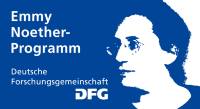People
Director: Simone Mühl
Field director: Alexander Sollee (2016)
Sector 1 and 5: Albert Dietz (2015-2017), Evelyn Kutzer (2016), Simone Mühl (2015), Saber Ahmed Saber (2015), Eva Schmalenberger (2017), Marco Wolf (2017)
Sector 2: Georg Hartmann (2017), Hero Saleh (2015), Alexander Sollee (2015), Laurin Stöckert (2016, 2017), Martin Wagner (2016), Felix Wolter (2015)
Sector 3: Felix Wolter (2015-2017), Laurin Stöckert (2017), Serap Özer (2016)
Sector 4: Hussein Hamza, Alexander Sollee (2016)
Sector 6: Simone Mühl, Alexander Sollee (2017)
Directorate Representatives: Zana Abdulkarim (2017), Saber Ahmed Saber (2015), Hero Saleh (2015), Nawsherwan Aziz (2016, 2017)
Pottery Drawings: Zuhair Rajab, freelance contractor
Pottery basic statistics & thin sections: Kathrina Schmidt
Restoration, small find drawings: Carmen Gütschow, freelance contractor, Felix Wolter
Plans and Maps: Eva Schmalenberger, Felix Wolter, Annika Hotzan-Tchabashwili (2016)
Specialists:
Anthropology/Human bones: Rafal Fetner, University of Warsaw
Archaeozoology: Joris Peters, Ptolemaios Paxinos, Ludwig-Maximilians University Munich
Archaeobotany: Ferran Antolín, German Archaeological Institute, Berlin; Manfred Rösch, Ruprecht Karls University Heidelberg
Chalcolithic pottery: Maria Bianca d'Anna, University of Vienna
Archaeometric analysis of Chalcolithic pottery: Mike Lewis, Cambridge University
Lithic and stone tools: Francesca Manclossi, CNRS
Magnetic survey: Marion Scheiblecker, Jörg Fassbinder, Ludwig-Maximilians University Munich
PhD projects:
2nd millennium pottery assemblage: Kathrina Schmidt, "Behind the Potter’s wheel. Eine Untersuchung zur sozialen Bedeutung der Keramikproduktion (chaîne opératoire) des 2. Jahrtausends v. u. Z. am Gird-i Shamlu/Irakisch Kurdistan" (An analysis of the social meaning of pottery production during the 2nd millennium BCE at Gird-i Shamlu)
Early Bronze Age pottery assemblageEarly Bronze Age pottery assemblage: Manuela Heil, „Die bemalte Keramik aus Gird-i Shamlu im Kontext transregionaler Netzwerke des 3. Jahrtausends v. Chr.“ (The painted pottery from Gird-i Shamlu in the context of transregional networks of the 3rd millennium BCE) at the LMU Munich
Magnetics: Marion Scheiblecker, „Geophysikalische Prospektion in der Shahrizor-Ebene. Eine Analyse zur Raumnutzung in ländlichen Siedlungen und urbanen Einzugsbereichen altorientalischer Siedlungssysteme“ (Geophysical prospections in the Shahrizor Plain. An analysis of land use in rural settlements and urban catchment areas of Ancient Near Eastern settlement systems) at the LMU Munich
MA thesis:
Context analysis: Laurin Stöckert, "Akkadzeitliche Wohnarchitektur. Ein Fallbeispiel aus neuen Grabungen in Gird-i Shamlu, irakisch Kurdistan" (Akkadian residential architecture. An example from recent excavations at Gird-i Shamlu), submitted in 2020 at LMU Munich.
Pottery studies: Felix Wolter, "Gird-i Shamlu, Sondage A und B. Eine Keramiksequenz in der Shahrizor-Ebene (Irakisch-Kurdistan)" (Gird-i Shamlu, Soundings A and B. A pottery sequence in the Shahrizor Plain, Iraqi Kurdistan), submitted in 2015 at the FU Berlin.
BA thesis
Stratigraphy: Marco Wolf, "Die Architektur des 2. Jahrtausends auf Gird-i Shamlu. Eine stratigraphische Untersuchung der Befunde aus Sector 1" (The 2nd millennium architecture at Gird-i Shamlu. A stratigraphic analysis of contexts in Sector 1) submitted in 2020 at the LMU Munich
Pottery studies: Serap Özer, "Die Verzierungsformen der Shamlu-Keramik des 2. Jahrtausends v.Chr. in der Shahrizor-Ebene, irakisch Kurdistan. Ein Deutungsversuch zur Herstellung und Bedeutung" (The designs of Shamlu pottery of the 2nd millennium BC in the Shahrizor Plain. Production and meaning) submitted in 2018 at the LMU Munich
